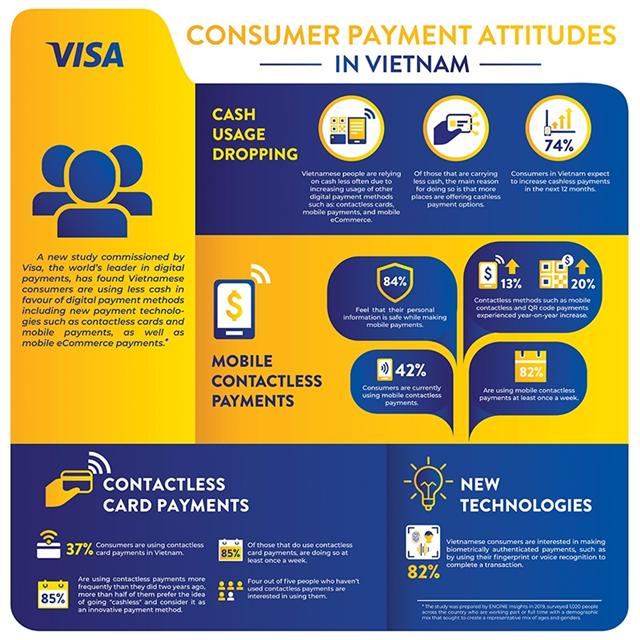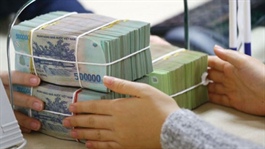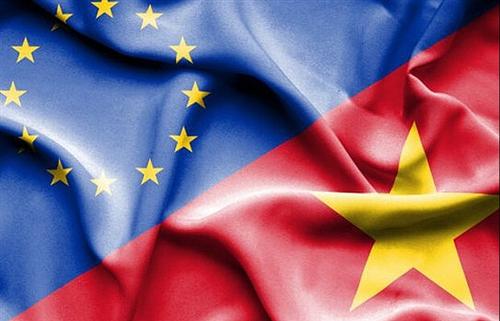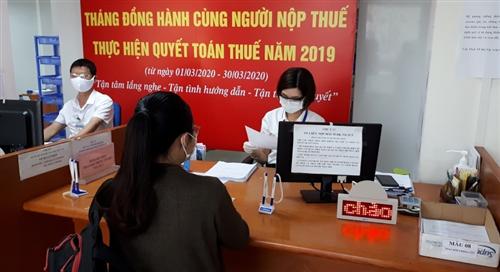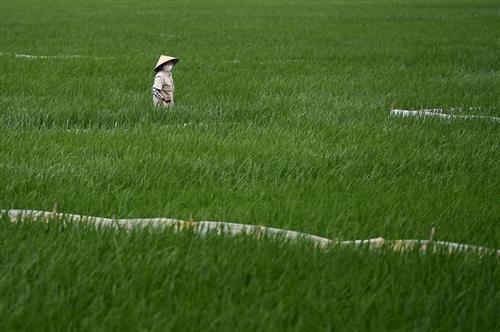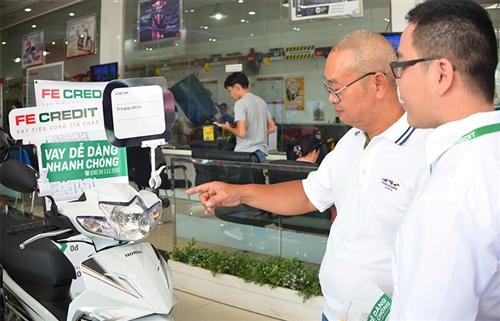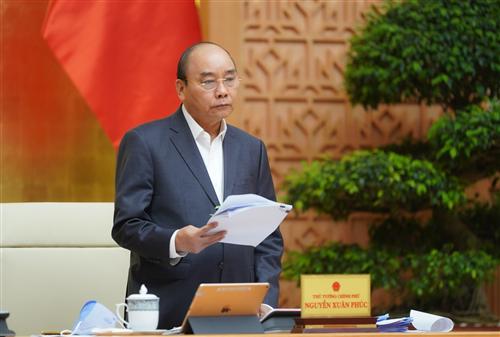Cashless payments beginning to gain traction across the country
Cashless payments beginning to gain traction across the country
Visa, the world’s leader in digital payments, recently published the Consumer Payment Attitudes 2019 study, showing a marked drop in cash usage in Vietnam as consumers embrace new ways to pay. Dang Tuyet Dung, country manager for Visa Vietnam and Laos, told VIR’s Thanh Van about the company’s plan to help Vietnam achieve a cashless economy.

Dang Tuyet Dung, country manager for Visa Vietnam and Laos
|
Could you shed some light on Visa’s latest research findings about the payment attitude of Vietnamese consumers?
Despite living in a digital age, consumers in Southeast Asia remain reliant on cash for their day-to-day purchases and see it as an important and enduring part of society. However, according to the Visa Consumer Payment Attitudes study in Southeast Asia, Vietnamese consumers are bucking the trend somewhat, as only seven in 10 are defaulting to using cash as a payment option.
The Consumer Payment Attitudes 2019 study commissioned by Visa has found that Vietnamese consumers are using less cash in favour of digital payment methods, including new payment technologies such as contactless card and mobile payments, as well as mobile e-commerce payments.
The study was prepared by ENGINE Insights in 2019 and surveyed 1,020 people across the country who are working part-time or full-time with a demographic mix that sought to create a representative mix of ages and genders.
The survey itself was prepared last year and surveyed 5,102 people across Indonesia, Malaysia, Philippines, Singapore, Thailand, Vietnam, and Myanmar.
The study found that Vietnam only ranks behind Thailand in the region in its enthusiasm to go cashless. Around 80 per cent of Vietnamese consumers plan to use cashless payments more often and move away from cash. Among those that are carrying less cash, the most commonly stated reason is that they found more places that accept digital payment.
These trends are reinforced by figures from VisaNet, the company’s payment processing network, which show that the value of purchases made by Vietnamese consumers on their Visa credit and debit cards increased by 39 per cent on-year, while the number of transactions grew by 54 per cent over the same period (VisaNet data Jan-Dec 2018 vs Jan-Dec 2019).
Consumers in Vietnam are also very supportive of government plans to evolve the country into a cashless economy. Specifically, around 79 per cent of consumers in Vietnam are in favour of the government goal to become a cashless nation.
These trends show that there is an increasing awareness of the benefits of cashless payments in Vietnam as well as the government’s vision to build a cashless nation. Indeed, cashless payments have spread rapidly in the Southeast Asian countries, leading Vietnamese – especially young people – to carry less cash in their wallets.
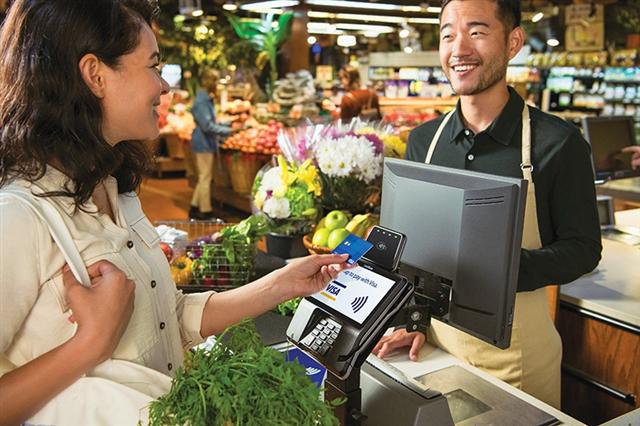
Visa has been one of the forerunners in supplying global markets with advanced cashless payment methods
|
What is the role of Visa in promoting cashless transactions in Vietnam’s rapidly-evolving payments landscape?
Visa’s mission in Vietnam has been to offer consumers the most efficient, convenient, and secure forms of payment possible – a goal which relies heavily on the adoption of new technologies. As such, it’s incredibly gratifying to see the results of this study, which demonstrate clearly that Vietnamese consumers are broadly recognising the benefits that payment technologies can bring to their lives, and adopting them at increasingly high rates.
One of the key new technologies that the study looked at was contactless payments – payments where a user simply taps their card, phone, or wearable device against a point of sale terminal. At present, 37 per cent are using contactless card payments, while interestingly, an even higher number (42 per cent) are currently using mobile contactless payments.
Eighty-five per cent of consumers who use contactless card payments are using them at least once a week. The study found there is clear room for growth with these new technologies, with four out of five consumers who have not used contactless card payments indicating that they are interested in using them.
As the world’s leader in digital payments, Visa has been bringing cashless payment technologies and innovations to Vietnam. Visa has collaborated with several banks to introduce contactless payment cards to Vietnamese consumers. As a result, Vietnamese consumers can now experience the speed, simplicity, and security of contactless payments at a number of merchants who accept contactless payments, including supermarket chains, fast food restaurants, convenience stores, and more.
|
In addition to bringing in new technologies, what are Visa’s other focus areas to accelerate the adoption of cashless payments?
Security plays an important role for consumers to go cashless. According to the Visa Consumer Payment Attitudes study, 84 per cent of Vietnamese consumers feel that their personal information is safe while making mobile payments. This high degree of confidence is reflected in the usage figures: mobile contactless payments, QR payments, and mobile payments in e-commerce all increased over 2018. In particular, 82 per cent of respondents said they are using mobile contactless payments at least once a week.
In addition, Vietnamese consumers may be open to sharing their financial information with banks and payment providers. Vietnam takes a lead in the region in terms of consumers’ trust in payment providers when it comes to providing access to personal information (76 per cent). There are a few countries that are less willing than Vietnam to grant access, such as the Philippines (67 per cent), Thailand (61 per cent), and Singapore (58 per cent).
It is clear that the growing number of cashless transactions is one of the main factors behind the rising demand for payment security in Vietnam. Therefore, Visa is committed to strengthen payment security of the digital payments system to boost cashless transactions in the country.
In March last year, Visa launched its Future of Security Roadmap for Vietnam focusing on a number of key initiatives which will enable security to evolve at the same pace as the technologies change the way consumers pay.
How do you see the prospects of Vietnam heading towards a cashless economy?
Over the last couple of years, there has been an expansion in the forms of digital payments in Vietnam, including the likes of credit cards, internet banking, mobile wallets, and digital payment apps, among others. Thus, Vietnamese consumers are increasingly embracing digital payments as a faster and more convenient way to pay, with consumers using cashless payments more often for in-store and online purchases.
The Visa Consumer Payment Attitudes study also found other new technologies that are garnering interest among consumers, with 82 per cent saying they were interested in making biometrically authenticated payments, such as by using their fingerprint or voice recognition to complete a transaction, while 81 per cent were interested in digital banking.
To realise Vietnam’s vision to achieve a cashless economy, Visa will continue to bring cutting-edge payment technologies to the market, while working closely with our stakeholders to ensure that we clearly communicate the benefits of these technologies to end users.
In addition, Visa also sees tremendous opportunities to digitise government service payments in Vietnam, having successfully implemented digital payment services for governments around the globe. Visa will actively work with agencies and financial institutions to help make cashless payments a success for the government. Moving forward, it is an exciting time for commerce in this market, and Visa looks forward to playing a role in assisting the ongoing modernisation of the Vietnamese economy.


